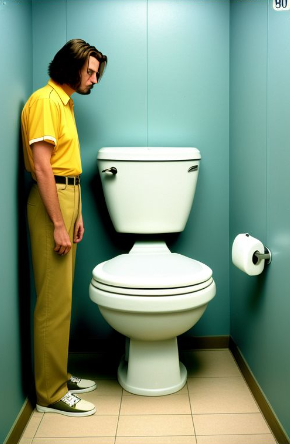Your bathroom trips are more than just a routine; they’re a window into your well-being. Let’s dive into what your stool can tell you about your health, and how you can use this information to stay on top of your game.
1. Hydration Check If your stool is hard and requires straining, it’s time to up your water intake. On the flip side, if it’s too loose, consider moderating your fluid consumption.
2. Diet Diary Finding food remnants? Slow down at mealtime and chew thoroughly. This simple change can improve your digestion significantly.
3. Digestive Detective Work Consistent changes in your stool’s form could hint at conditions like IBS or gluten intolerance. Keep a food diary to track triggers and discuss with your doctor.
4. Liver Lookout Pale stools aren’t just odd; they could signal your liver needs attention. It’s a sign to check in with a healthcare professional.
5. Gallbladder Glimpse Similarly, a lack of bile, resulting in light-colored stool, might point to gallbladder issues. Don’t ignore these clues; your body is signaling for help.
6. Pancreatic Preview Greasy stools can indicate trouble digesting fats, a job for the pancreas. If this is a regular occurrence, it’s worth investigating further.
7. Intestinal Insights Narrow, pencil-like stools can suggest a blockage. While it might be nothing, it’s better to be safe and seek medical advice.
8. Blood Loss Lookout Black or red in your stool? It could be a sign of internal bleeding. This is a red flag to get checked out immediately.
9. Infection Indicators Unusual smells or mucus can point to infections. If these symptoms persist, it’s time to consult with a doctor.
10. Medication Markers Some meds can change your stool’s appearance. If you’ve started a new medication and notice a difference, chat with your pharmacist or doctor.
Remember, while these signs can guide you, they’re not a diagnosis. If you’re concerned about your health based on what you see in the toilet, don’t hesitate to reach out to a healthcare provider. Your poop is telling you a story; make sure you’re listening.
This article is designed to empower you with knowledge about your body’s signals. Keep an eye on your stool—it’s one of the simplest ways to monitor your health daily. Stay informed, stay healthy!








